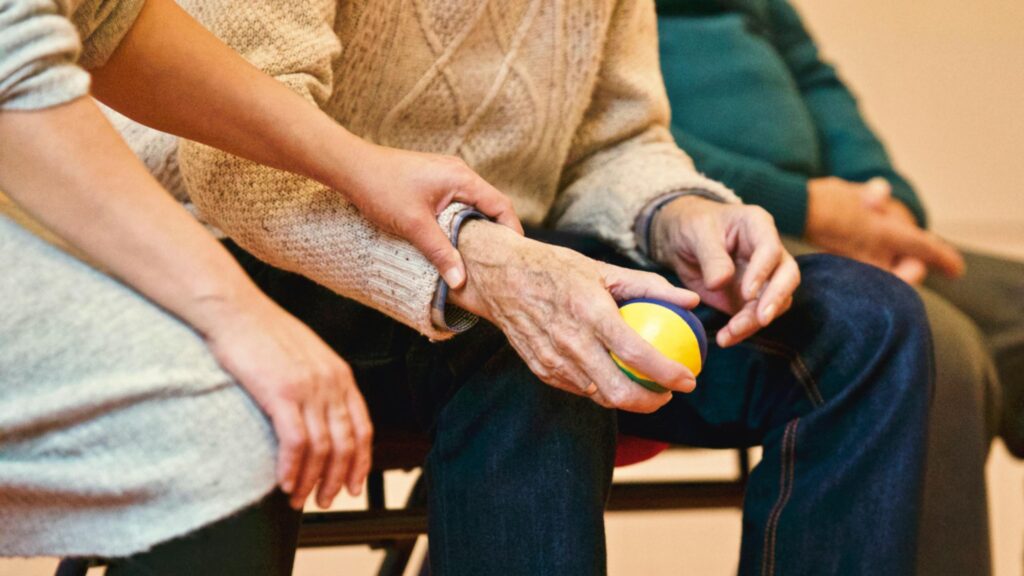Alzheimer’s has been on the rise in Texas, but especially in the Rio Grande Valley. And as numbers grow, so do concerns among advocates that the state isn’t doing enough.
Proposition 14 on the ballot this November aims to take $3 billion from the state’s surplus and put it towards Alzheimer’s research.
Dr. Joanne Pike, president and CEO of the Alzheimer’s Association, joined Texas Standard to discuss. Listen to the interview above or read the transcript below.
This transcript has been edited lightly for clarity:
Texas Standard: Alzheimer’s has been on the rise in Texas, especially among Latino populations. Is there any idea about why that might be?
Joanne Pike: Well, we know that Alzheimer’s and dementia, certainly, as you mentioned, is a rising concern for many individuals. It is on the rise because we are an aging population. The fact is, is the country is aging.
Texas, in particular, is at great risk because of where we stand in our aging population. Dementia affects currently 459,000 Texans over the age of 65. And in the next two to five years, Texas is going to become the oldest state in the country. So our future is going to be impacted by having more individuals age into the greatest risk factor for Alzheimer’s.
Having a higher Hispanic/Latino population in the state of Texas also makes this of significant concern as well, because we do know that the Hispanic/Latino population is at greater risk. They have a higher – about one and a half times risk – of developing Alzheimer’s or another form of dementia.
I want to talk about the proposition that is on the ballot for November. If this were indeed approved, where would that money go? I mean, specifically, how would that be used as you understand it?
Proposition 14 would create the largest state-funded dementia research program in the U.S. It’s allocating $3 billion over 10 years to the newly established Dementia Prevention and Research Institute of Texas, which would give us the opportunity to follow a successful model that has been going on here in Texas for a couple of decades, the CPRT model – the Cancer Prevention and Research institute of Texas.
» RELATED: Your guide to all of Texas’ proposed constitutional amendments on the ballot this November
Is this new center already up and running or are we talking about the development of something new?
It was passed earlier this year. However, it was decided to send it out to Texans to decide whether to fund it.
So it does not exist today, but we do have incredible leadership already in the state around Alzheimer’s and dementia research. Our UT system, for example, are world-class leaders in research, and DPRIT would give us the opportunity to really double down on those efforts and bring to Texas research leadership in a greater way.
A specific group of folks do not get much attention when we talk about some of these chronic conditions, and that’s the caregivers. Does this proposition do anything to address them?
It does in a couple of different ways. You know, right now in Texas, we have about 1.1 million family caregivers with the growing population. We know that’s only going to expand.
Caregivers have their own health crisis, as well, and being able to include them within the care journey is incredibly important.
DPRIT and Prop 14 would give us the ability to provide specialized training in areas that lack current systems for primary care or getting expert care. And part of that is being able to care for our caregivers as well. We do research on caregivers and the impacts of stress and what vulnerabilities are created as a result of providing care.
» GET MORE NEWS FROM AROUND THE STATE: Sign up for Texas Standard’s weekly newsletters
This passed with bipartisan support during the legislative session. What about when it comes to November? Do you have any way of knowing where voters stand, at least in the run-up to the election?
We have heard there is significant support throughout the research community in the state. We know that certainly our volunteers across the state are very excited. And there continues to be strong bipartisan leadership support in the Legislature to help us get out this message.

